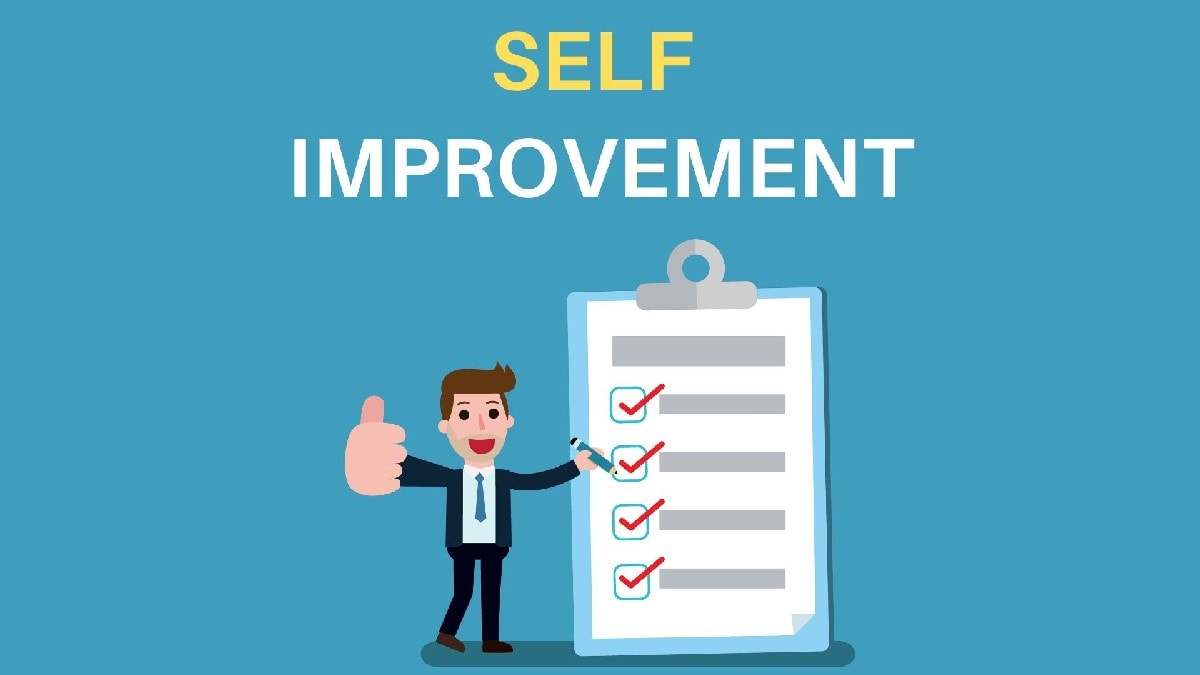Self-improvement is a lifelong journey of growth and development. It’s the process of enhancing your abilities, mindset, and habits to lead a more fulfilling and productive life. Whether it’s striving to be better at work, improving personal relationships, or achieving health and wellness goals, self-improvement plays a crucial role in personal success and happiness. In this article, we’ll explore the importance of self-improvement, practical steps to implement it in your life, and how to stay motivated through the ups and downs.
Why Self-Improvement is Essential
Self-improvement is essential because it empowers you to become the best version of yourself. It’s about making conscious choices to elevate your knowledge, skills, and mindset. Here are some key reasons why investing in self-improvement is important:
- Increases Self-Awareness
Self-improvement helps you gain a deeper understanding of your strengths and weaknesses. By acknowledging areas where you need growth, you can take steps to improve and evolve. Self-awareness is key to making better decisions, building better relationships, and being more mindful in everyday life. - Enhances Personal Growth
Growth happens when you challenge yourself. Self-improvement encourages you to step out of your comfort zone, take risks, and try new things. This process leads to developing new skills, gaining confidence, and becoming more adaptable. - Boosts Confidence and Self-Esteem
As you work toward your goals, you’ll begin to experience small victories that build confidence. When you improve yourself, you not only develop new abilities but also prove to yourself that you’re capable of achieving your objectives. - Improves Relationships
Investing in self-improvement can have a positive impact on your personal and professional relationships. By developing emotional intelligence, effective communication skills, and empathy, you become better at understanding and connecting with others, leading to stronger relationships. - Helps Achieve Long-Term Success
Self-improvement isn’t about quick fixes; it’s a commitment to long-term development. By setting and working toward long-term goals, you create a sustainable path for personal and professional success.
Steps for Effective Self-Improvement
The process of self-improvement can seem overwhelming at first, but it becomes much more manageable when broken down into actionable steps. Here are some effective strategies to help you start your journey:
- Set Clear Goals
The first step in self-improvement is setting clear, measurable, and realistic goals. Whether you want to learn a new skill, improve your health, or advance in your career, defining specific goals gives you direction and purpose. Break larger goals down into smaller, manageable tasks to make progress more achievable. - Develop a Growth Mindset
A growth mindset is the belief that you can develop your abilities through dedication and hard work. Embracing challenges, learning from failures, and persevering through obstacles are all part of this mindset. When you approach self-improvement with a growth mindset, you open yourself up to continuous learning and development. - Create a Routine
Building positive habits is essential for personal growth. Establishing a daily or weekly routine helps you stay consistent and focused on your goals. Whether it’s exercising, reading, journaling, or practicing mindfulness, incorporating small, positive habits into your routine can lead to significant improvements over time. - Focus on Self-Care
Physical, mental, and emotional well-being are all vital to self-improvement. Regular exercise, proper nutrition, quality sleep, and mental health practices such as meditation or therapy can help you feel more energized and focused. When you take care of yourself, you’re better equipped to handle the challenges of self-improvement. - Learn Continuously
Never stop learning. Make a commitment to develop your skills and knowledge. You can do this by reading books, taking courses, attending workshops, or engaging in conversations with mentors and peers. The more you learn, the more you grow. - Stay Accountable
Having someone to hold you accountable can make a big difference in your self-improvement journey. Share your goals with a friend, family member, or coach who can check in on your progress and encourage you when you feel discouraged. - Embrace Failure as Part of the Process
Failure is inevitable, but it doesn’t define you. Instead of avoiding failure, use it as an opportunity to learn and grow. When you view setbacks as lessons rather than obstacles, you’ll be more resilient and motivated to keep going.
Overcoming Challenges in Self-Improvement
The journey of self-improvement is rarely linear, and you’ll likely encounter obstacles along the way. Here’s how you can overcome common challenges:
- Lack of Motivation
Motivation can fluctuate, but persistence is key. Break your goals into smaller tasks, and celebrate your progress along the way. Stay inspired by reminding yourself of your “why” — the reason you started your self-improvement journey in the first place. - Fear of Change
Change can be scary, but it’s necessary for growth. Start with small changes that feel manageable, and gradually build up your confidence to tackle bigger transformations. Trust that change is an opportunity to become a better version of yourself. - Procrastination
Procrastination is a common roadblock to self-improvement. Combat it by setting deadlines, eliminating distractions, and taking action immediately on small tasks. The more you act, the less likely procrastination will hold you back. - Self-Doubt
Self-doubt is normal, but it’s important not to let it prevent you from moving forward. Practice self-compassion, and remind yourself of your achievements and strengths. Seek support from others, and don’t be afraid to ask for help when needed.
Conclusion
Self-improvement is a transformative journey that requires dedication, self-awareness, and persistence. By setting clear goals, adopting a growth mindset, and committing to regular self-care, you can unlock your full potential and create a more meaningful life. The key is to focus on continuous learning, embrace challenges, and stay resilient through setbacks. Remember, the road to self-improvement is not always easy, but the rewards are worth it.

